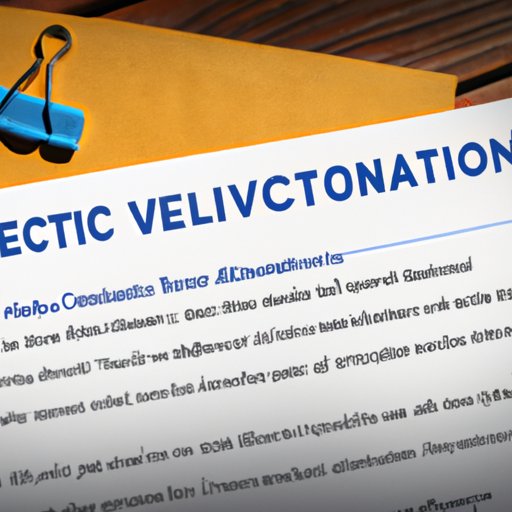Introduction
Eviction is a legal process in which a landlord removes a tenant from a rental property due to a breach of the rental agreement or lease. It is important to understand the legal requirements and procedures involved in an eviction before proceeding with the process. This article provides an informative guide to starting the eviction process in South Carolina.
Notice to Vacate Process
The first step in the eviction process is to serve a Notice to Vacate to the tenant. A Notice to Vacate is a written document that informs the tenant that they must leave the premises by a certain date or face eviction proceedings. In South Carolina, a landlord is required to provide the tenant with a 30-day written notice to vacate the premises.
In order for the notice to be valid, it must include the following information: the name of the tenant, the property address, the landlord’s name, the reason for the notice, the date of issuance, and the date by which the tenant must vacate the premises. The notice must also be signed by the landlord or their agent.
The notice must be served to the tenant in person or through certified mail. If the tenant is not present at the time of service, the landlord may post the notice in a conspicuous place on the property or deliver it to someone of suitable age at the property.
Filing an Eviction Complaint
If the tenant does not vacate the premises within the specified time frame, the landlord must file an eviction complaint with the local magistrate or county court. The eviction complaint must include the following information: the names of both the landlord and tenant, the property address, the amount of rent owed, and the date the tenant was notified to vacate the premises.
The eviction complaint should be filed in the county where the rental property is located. Once the complaint has been filed, the court will issue a summons to the tenant informing them of the court date. The landlord must then serve the tenant with the summons either in person or through certified mail.
Court Proceedings Involved in an Eviction
Once the tenant has been served with the summons, the court proceedings can begin. At the court hearing, both the landlord and tenant will have the opportunity to present their case. The court will then decide whether or not to grant the eviction. If the court grants the eviction, the tenant will be required to vacate the premises within a certain period of time.
During the court proceedings, both parties must adhere to certain timelines and deadlines. The tenant must respond to the eviction complaint within 10 days of receiving the summons, and the court hearing must take place within 30 days of the tenant receiving the summons. The landlord must also provide all necessary documents and evidence needed to prove their case at the court hearing.

Tips on How to Successfully Navigate the Eviction Process
Navigating the eviction process in South Carolina can be complicated and time-consuming. To ensure a successful outcome, here are some tips for landlords to keep in mind:
• Prepare and research before starting the eviction process: Make sure you understand the applicable laws and regulations in your area, as well as the rights and responsibilities of both the landlord and tenant.
• Understand the applicable laws and regulations: Familiarize yourself with the state’s eviction laws and regulations. This will help you avoid any potential legal issues during the eviction process.
• Follow all procedures and timelines: Be sure to follow all the steps and procedures outlined in the law, as well as the timelines associated with each step. Failure to do so could result in the eviction being delayed or dismissed.
• Contact an attorney or other legal help if needed: If you have questions or need assistance, consider consulting with an attorney or other legal help. They can provide guidance to help ensure a successful outcome.
Conclusion
Eviction is a serious matter, and it is important for landlords to understand the legal requirements and procedures involved. This article provides a comprehensive overview of the eviction process in South Carolina, including notice to vacate, filing an eviction complaint, and court proceedings. It also offers tips on how to successfully navigate the eviction process. Remember to prepare and research before starting the eviction process, understand the applicable laws and regulations, follow all procedures and timelines, and contact an attorney or other legal help if needed.
(Note: Is this article not meeting your expectations? Do you have knowledge or insights to share? Unlock new opportunities and expand your reach by joining our authors team. Click Registration to join us and share your expertise with our readers.)
